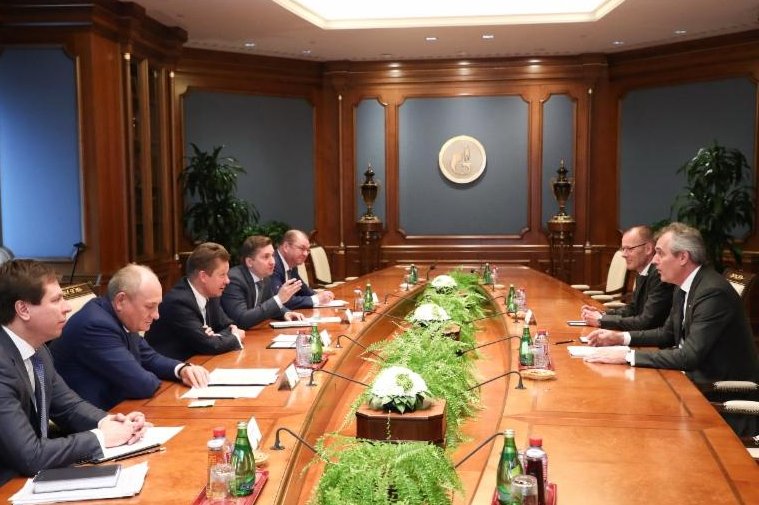Russian energy company Gazprom reviews progress on its Nord Stream gas pipeline to Europe with its counterparts at Austria's OMV. Photo courtesy of Gazprom
May 16 (UPI) -- Progress on the second phase of the Nord Stream pipeline to Europe was the focus of talks with Austrian energy company OMV, Russia's Gazprom said.
The top brass at the Russian natural gas company met in Moscow with their counterparts from OMV, noting Russian gas shipments to Austria are already up more than 70 percent from last year.
During talks, the Russian company said "particular attention was paid to the progress of the Nord Stream 2 project."
The German government in April issued a permit for the twinning of the Nord Stream natural gas pipeline running through the Baltic Sea from Russia. With the permit, the German government has issued all of what's necessary for the project in its territory.
The existing Nord Stream pipeline extends from Russia through the Baltic Sea and then makes landfall in Germany. Russian Energy Minister Alexander Novak said he expected other European partners would follow Germany's lead on the second leg of Nord Stream.
Gazprom plans to double the twin Nord Stream network and its partner in the project, Austrian energy company OMV, said the network is "of critical strategic importance ... as it will secure consistent, long-term gas supplies to Europe."
This issue could have sanctions ramifications as the U.S. government said it was staying firm with its pressure on Iran even if that has consequences for European businesses. OMV signed a memorandum of understanding in Tehran with the National Iranian Oil Co. last year to assess the field potential at several developments in western Iran. The arrangement also included consideration for crude oil and petroleum product trades.
Heather Nauert, a spokeswoman for the U.S. State Department, said that any company that engages in the Nord Stream project could run afoul of the Countering America's Adversaries Through Sanctions Act, which imposed sanctions last year on Iran, Russia, and North Korea.
More than 60 percent of total Russian exports are oil and natural gas, which combine for about 30 percent of the gross domestic product. Vyacheslav Volodin, the speaker of the State Duma, the lower house of parliament, said new efforts were under way at sanctions busting.















